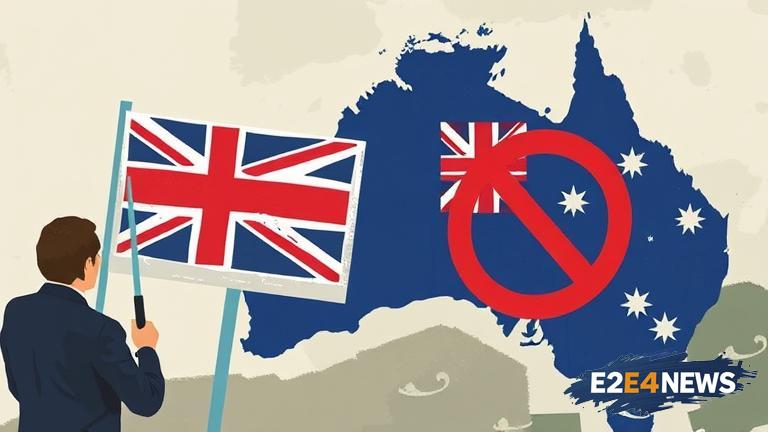Australia’s bid to host the COP31 climate conference has sparked a heated debate about the role of fossil fuel lobbyists in shaping climate policy. The Australian government has proposed a ban on fossil fuel lobbyists attending the conference, citing their significant influence on climate decision-making. This move has been met with both praise and criticism, with some arguing that it is a necessary step to ensure the integrity of climate negotiations, while others claim it is an attack on free speech. The proposal has sparked a wider conversation about the impact of lobbying on climate policy, with many arguing that the fossil fuel industry has a disproportionate influence on government decision-making. The Australian government has argued that the ban is necessary to prevent the fossil fuel industry from undermining climate action, and to ensure that the conference is focused on finding solutions to the climate crisis. However, some have raised concerns that the ban could be seen as an attack on the rights of fossil fuel companies to participate in the democratic process. The proposal has also sparked a debate about the role of lobbying in Australian politics, with some arguing that it is a necessary part of the democratic process, while others claim that it is a corrupting influence. Despite the controversy, the Australian government remains committed to its proposal, and has argued that it is a necessary step to ensure the success of the COP31 conference. The conference, which is scheduled to take place in 2026, will bring together representatives from over 190 countries to discuss climate action and agree on new targets for reducing greenhouse gas emissions. The Australian government has argued that the ban on fossil fuel lobbyists is necessary to ensure that the conference is focused on finding solutions to the climate crisis, rather than being influenced by the interests of the fossil fuel industry. The proposal has been welcomed by many climate activists, who have long argued that the fossil fuel industry has too much influence over climate policy. However, it has also been met with criticism from some business groups, who argue that it is an attack on the rights of companies to participate in the democratic process. The debate over the proposal is likely to continue in the coming months, as the Australian government prepares to host the COP31 conference. The conference is seen as a critical moment in the global effort to address the climate crisis, and the Australian government’s proposal has sparked a wider conversation about the role of lobbying in climate policy. The proposal has also highlighted the need for greater transparency and accountability in climate decision-making, and has sparked a debate about the ways in which the fossil fuel industry can be held accountable for its influence on climate policy. Overall, the Australian government’s proposal to ban fossil fuel lobbyists from the COP31 conference has sparked a heated debate about the role of lobbying in climate policy, and has highlighted the need for greater transparency and accountability in climate decision-making.
